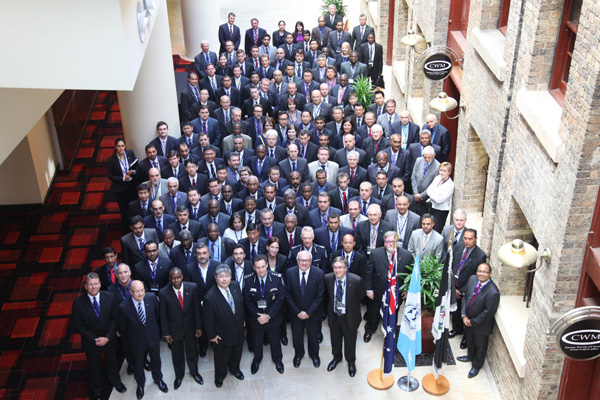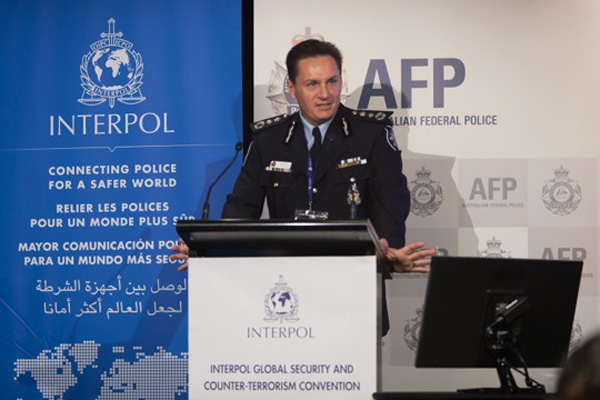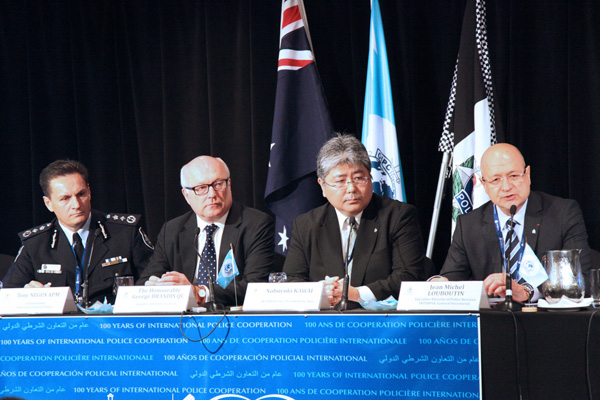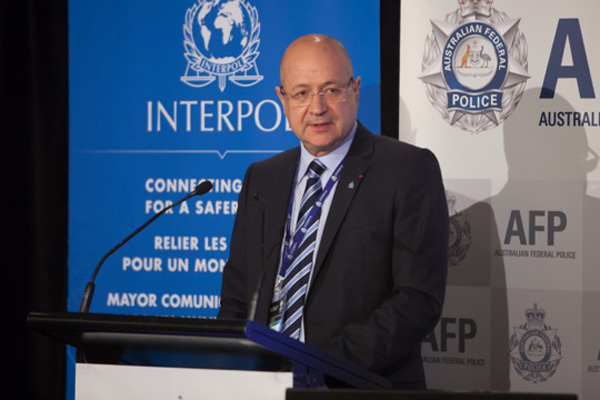SYDNEY, Australia – Identifying emerging trends in terrorism and transnational crime to develop a global coordinated response is the focus of the INTERPOL Global security and Counter-terrorism Convention.
More than 200 police chiefs, heads of counter-terrorism units and international experts from academic, governmental and private sector institutions from some 70 countries will address a range of issues including transnational fighters, kidnapping for ransom and the chemical, biological, radiological, nuclear and explosives terrorism threat.
The three-day (28 – 30 January) meeting in Sydney, Australia will also see participants updated on INTERPOL’s global tools and services available to support member countries, including its network of 200 counter-terrorism contact officers, Incident Response Teams and the Integrated Border Management Task Force.
“INTERPOL supports the global law enforcement community in dismantling criminal and terrorist networks through operational assistance, its global databases, criminal intelligence resources, as well as training and technical expertise,” said Nobuyuki Kawai, INTERPOL Vice President for Asia.
“Our biggest challenge is how to remain ahead of these transnational criminals in this increasingly globalized world, and we must continue to adapt, innovate, anticipate, and see what is beyond the conventional law-enforcement horizons,” added Mr Kawai.
Australian Federal Police (AFP) Commissioner Tony Negus said the convention provides an opportunity for the international law enforcement community to improve future cooperation and initiatives.
“The threat of international terrorism is real and continues to evolve and grow in complexity. During the coming days, the AFP and its partners will engage in in-depth analysis of evolving trends in transnational crime, including terrorism and identify strategies to shape the global response,” said Commissioner Negus.
“History and experience clearly show that information exchange is essential in combating all forms of crime, but this is still not the case when it comes to terrorism, and this needs to change,” warned Jean-Michel Louboutin, INTERPOL’s Executive Director of Police Services.
“INTERPOL is ideally and uniquely placed to support the global law enforcement community in these efforts.
“Countries need to ensure their frontline officers, especially at borders where criminals are at their most vulnerable have access to INTERPOL’s tools and databases which contain vital policing information and can be crucial in identifying fugitives and terrorists attempting to evade capture,” added Mr Louboutin, pointing to recent INTERPOL-coordinated operations and training to support countries in developing sustainable border security strategies against terrorism and transnational crime.
Under the ‘Hawk’ and ‘Dove’ operations involving law enforcement officials from police, immigration, customs and border security, more than 400,000 checks were carried out against INTERPOL’s databases for wanted persons, stolen and lost travel documents and stolen motor vehicles.
The Hawk operation in Southeast Asia also resulted in the seizure of more than 70 kg of sodium chlorate, a chemical precursor used in Improvised Explosive Devices.
In addition to coordinating operations in the field, INTERPOL has also facilitated a series of meetings to address issues including terrorist flows of money, travel routes used by terrorists and transnational fighters in conflict zones and produced a series of intelligence and analytical reports.
Supported by the Canadian Government and Australian Federal Police, the INTERPOL Global security and Counter-terrorism Convention will build on member countries’ expertise and experience to identify areas where additional support and coordination is required.









